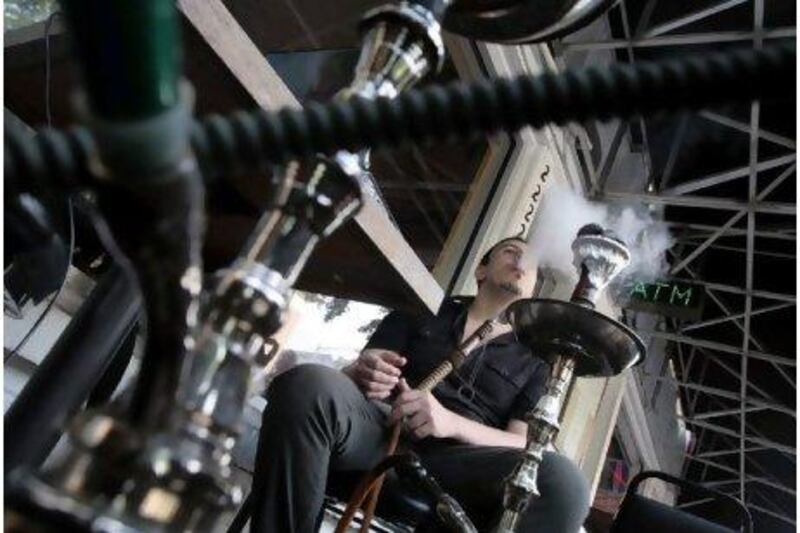WASHINGTON // In Adams Morgan in the north-west sections of the city, seven shisha lounges are scattered along a five-block stretch. For many here, efforts to restrict the shisha smoking would affect livelihoods as well as lifestyles.
"They should just kill me. It would be quicke," said Mehmet Sabik, who along with his wife, Leila, owns Sawah Diner, a shisha lounge, and the adjoining Mamm'a Mia Restaurant .
Anti-shisha campaigns are currently taking place across 10 American states, according to a New York Times article last month.
The article caught the attention of Washington City Council members and Mr Sabik, who fears a similar effort in Washington.
Currently specifics on such a clampdown remain murky, with city council members just beginning to contact experts on the subject. Currently, shisha lounges are allowed under existing regulations for indoor smoking.
"Since that article came out I've been contacted by just a few of the council members in DC who have indicated that they are interested in looking in to DC [shisha] regulations and seeing how they can tighten them," Kimberly Williams, a manager for advocacy and communications at the American Lung Association, said.
The New York Times reported that "most of the anti-[shisha] laws now under consideration are intended to end exemptions in state indoor-smoking bans that allowed shisha bars to thrive. Such bans often contained exceptions for 'tobacco specialty shops'; many shisha bars qualify as such by not serving food or alcohol."
Forced to contend with a floundering economy and high taxes, Mr Sabik became solemn as the implications of further regulation set in.
Less than 15 metres away from Sawah Diner, at Soussi Restaurant, Wilmat Mwamdanda, a manager, admired the community atmosphere of Soussi, and lamented any future change that regulation may bring.
"[It would] take away from what this place is. Everyone knows everyone else. It's always been that way."
Two Soussi regulars, Kevin Simpson and Reem Labib, education consultants, enjoyed Soussi's company and atmosphere while perched at the aged wooden bar, a bubbling shisha pipe between them.
Like many others in America, Mr Simpson started smoking shisha in college. Both he and Ms Labib saw smoking shisha as a social outlet that allowed them to share the company of others while smoking.
Though she recognises the health hazards associated with smoking shisha, which she says are compounded by her asthma, Ms Labib argues that the infrequency with which she smokes mitigates the risks it poses. "I do so seldomly. It's like drinking. I know it's bad for me, but I do it anyway."
Mr Simpson too found health risks to be of minimal concern, "Because it is in moderation, I don't worry. I go to my annual checkup, and there have been no major issues so far."
Nevertheless health officials are quick to caution of the harmful effects of shisha. Dr Norman Edelman, chief medical officer of the American Lung Association, said there was no evidence of a "threshold effect" with sheesha - that an individual could smoke a certain amount and be free of health hazards - and that, in fact, the health risks of shisha may surpass those of cigarette smoking.
"There was a recent study … which showed that people who do this actually put more monoxide in their blood than people who smoke a lot of cigarettes, because they're sitting there sometimes for an hour or more inhaling this stuff." His organisation has made anti-shisha legislation a top-priority issue.
According to Samira Asma, chief of the Global Tobacco Control Branch at the US Centers for Disease Control, not only is there a spectrum of health effects ranging from cancer to cardiovascular disease, but the very nature of tobacco increases the likelihood of addiction.
Mr Sabik recognises the ill health effects of smoking both cigarettes and shisha, and is keen to point out that he will not allow his soon-to-be-born child to be around any smoking.
Still, he has to face economic realities, and warns that a future clampdown will only "kill small business".






